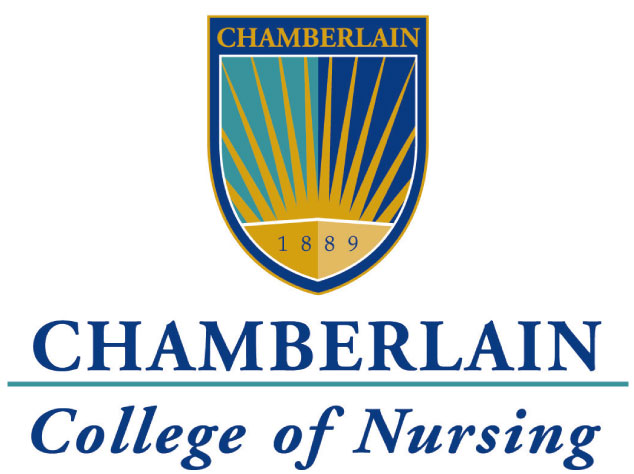Doctor of Nursing Practice
The doctor of nursing practice (DNP) builds upon master’s programs with evidence-based practice, leadership and healthcare improvement. The DNP is the top of the practice-focused nursing degree food chain. Leadership, financial and clinical skills put DNP nurses in a position to design patient care programs that improve healthcare best practices that impact patient care from the top down.
DNP nurses impact healthcare outcomes that can include both:
- Providing direct patient care (nurse anesthetist, adult gerontology, nurse practitioner, nurse midwife, women’s health, pediatrics, mental health)
- Leadership/organizational (healthcare policy, education, administration, informatics, executive leadership)
The DNP, which is a research-based doctorate, is for nurses who wanted additional education related to nursing practice. DNP nurses hold top positions in leadership, management and administration.

DNP Program
Programs vary by university, accrediting body and state boards of nursing but the AACN recommends that DNP programs last 36 months of full time study. Part time students may be able to earn the DNP degree in four years but many times have six to seven years to complete their studies. MSN to DNP programs can be completed in two years depending on the area of specialization, number of practicum hours required and program structure.
DNP programs include practice experiences designed to help students complete the necessary competencies. The AACN recommends that DNP programs should consist of one thousand hours of post-baccalaureate practice as part of the supervised program. Practice experiences include environments and in-depth work with experts in nursing experts and experts in other fields. Your final project should be related to the end of program immersion experience since that is where your hands-on work took place.
The DNP program has a component for the completion of a specific project designed to show your mastery of an advanced specialty within nursing practice. Your final DNP project will demonstrate your educational experience, summarize your knowledge/expertise in your specialty, contribute to existing nursing knowledge and provide a path to evaluate your immersion experience.
Your final DNP project can include:
- Consulting project
- Program effectiveness evaluation
- Pilot study
- Practice portfolio
- Research utilization project
- Quality improvement project
Some examples include:
- Evidence-based practice update for nurse practitioners in an urgent care setting
- Consequences, Prevention, and Treatment of Childhood Overweight and Obesity
- Prevalence of Symptoms in Multiple Sclerosis Patients
- Obesity Prevention in Young Children
- Predictors of the First-Year Nursing Student at Risk for Early Departure
- The Predictive Value of Second Trimester Blood Pressures on the Development of Preeclampsia
- Nursing Informatics Certification and Competencies: A Report on the Current State and Recommendations for the Future
- Development of a Web-Based Health Information Database and Call Center
- Translation of Autism Screening Research into Practice
- Effectiveness of Chronic Disease Self-Management Programs for Mentally Ill Inmates with Diabetes
- Optimizing Inpatient Heart Failure Education to Support Self-Care After Discharge
- Strategic Plan for a Patient-Centered Medical Home Adaptation
- Development of a Virtual Nursing Learning Lounge to Bridge the Practice Gap
- Leadership, Advocacy, and Policy: Development of a Professional Organization for Doctors of Nursing Practice
- Media Influence on Nutritional Choices in School-Age Children
- Interdisciplinary Simulation Training for Evidence-Based Obstetric Crisis Management
- A Web-Based Group Intervention for Patients with Recurrent or Metastatic Pancreatic Cancer
- Evaluation of Pain Management Practices Among Laboring Women
- A Multi-Method Approach to Evaluating Online Distance Learning in Nursing Education
Learn about DNP degrees offered by our partners
| ||
|
DNP Nurse Job Outlook
According to the U.S. Bureau of Labor Statistics the need for APRN’s (including NP’s and DNP’s) is expected to grow by 31% by 2026. This is much faster than the national average for other healthcare related jobs and a tremendous opportunity for nurse’s to advance their careers. Baby Boomers will require an increased need for care as they age. APRN’s specializing in geriatrics will be especially needed.
The average salary of a DNP nurse is $135,830 according to the U.S. Bureau of Labor Statistics. Nurses with a DNP are recognized as the top earners in their field. Earning a DNP degree enables you to stand out among your peers as a highly educated nurse which opens more doors when pursuing top-tier nursing positions. DNP nurses are leaders that bring evidence-based practices into the clinical setting to improve healthcare outcomes and policy.
Average Annual Salary for DNP
$135,830
Data from Bureau of Labor Statistics
Job Market Growth
31%
Data from Bureau of Labor Statistics
Sign Up for Nursing News & Updates
Sign up to receive updates from moneyfornursingschool.com. We'll send you important information on how to pay for nursing school, links to scholarships and tips to help you financially prepare for nursing school.


